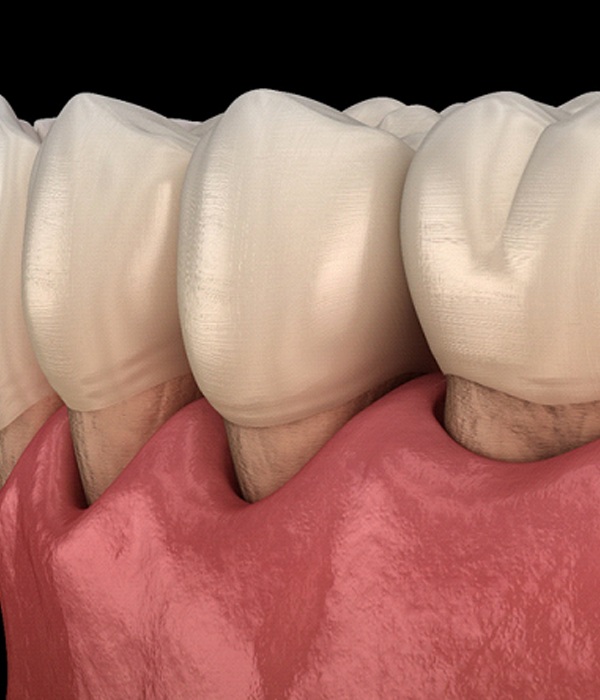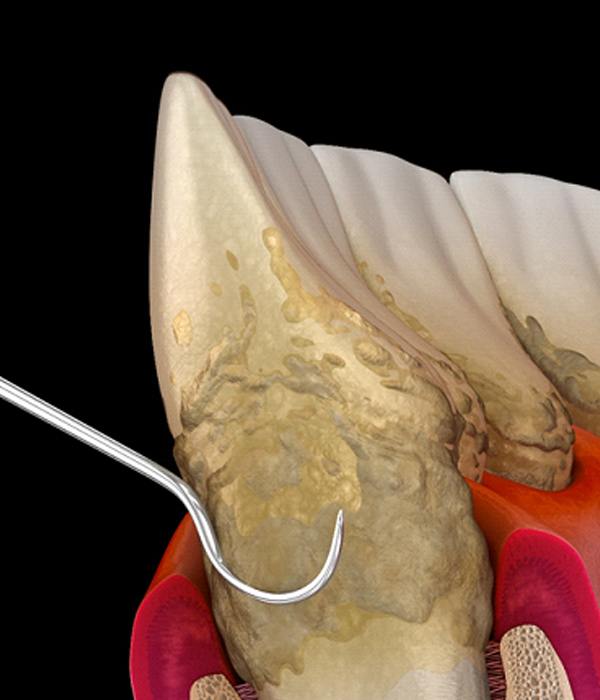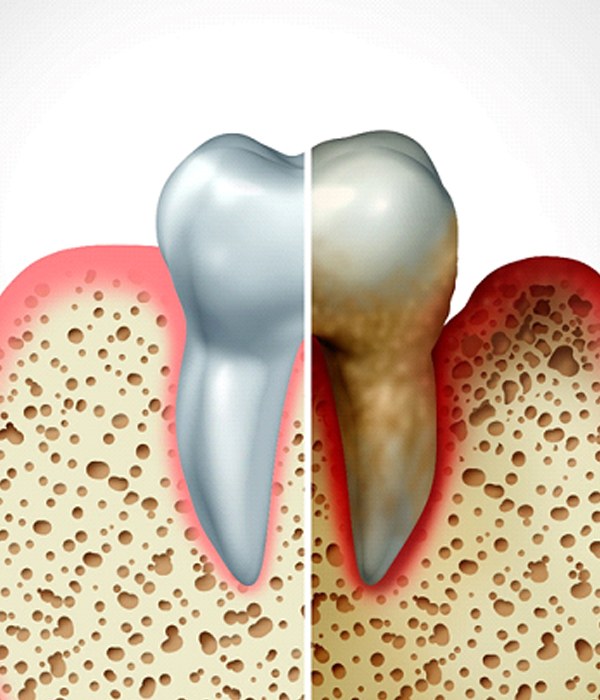
Pocket Reduction Surgery – Colorado Springs, CO
Clear Out Trapped
Plaque and Start
Healing

Did you know that nearly half of American adults have advanced periodontitis? This gum infection may not be alarming to you initially; however, untreated it leads to tooth loss and an increased risk of heart disease and Alzheimer’s. At Rocky Mountain Periodontal Specialists, we want to help you maintain not just your oral health but your overall health through pocket reduction surgery in Colorado Springs, CO. If you or your patient had advanced gum disease, contact us right away so that we can resolve the problem and get your smile back on track.
What Is Pocket Depth Important?

Before explaining what pocket reduction is, you first need to understand why pocket depth is something to pay close attention to. At every routine dental appointment, your dentist checks to make sure that gap between your gums and teeth is as shallow as possible. Healthy gums should be attached to the teeth with only a tiny pocket, but if you are not properly maintaining healthy oral habits like daily brushing and flossing, your smile may pay the price.
When Is Pocket Reduction Needed?

If measured gum depth is more than 2 or 3 millimeters, you may have the early stages of periodontitis. At that point, your dentist may be able to handle a procedure called scaling and root planing to reverse the condition. However, beyond 5 or 6 millimeters, advanced periodontitis has set in. It becomes necessary to perform pocket reduction because the harmful bacteria in plaque have gathered and hardened in these deep pockets, causing permanent damage to the gum and bone tissue.
What Is Pocket Reduction?

Pocket reduction is a surgical procedure that allows us to reach down into these large pockets of trapped plaque and get rid of them. Often pocket reduction is paired with other procedures, such as bone grafts and tissue regeneration, to help the patient recover fully from gum disease.
What Is the Process of Pocket Reduction?

When one of our periodontists determine that you have advanced periodontitis, we’ll administer a local anesthetic to make sure you’re comfortable throughout the procedure. Then, we’ll pull back the gum tissue, exposing the plaque and tartar buildup under the gumline. After we remove harmful bacteria from your teeth roots, we might also smoothen the rough surfaces. This keeps bacteria from accumulating there again in the future and makes it easier for the gum tissue to reattach to the teeth.